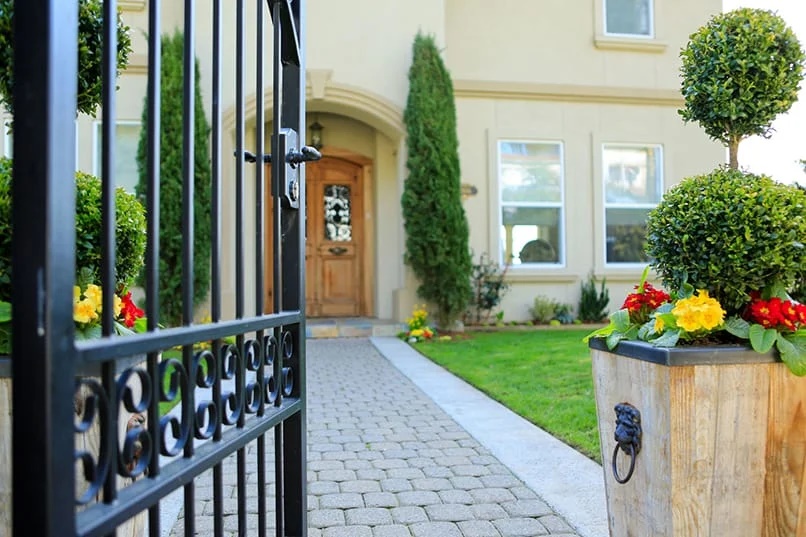Why Do People Say, “If You’re Poor, Don’t Fix the Door”?
In life, everyone aspires to attain abundance and prosperity. Many even dream of becoming wealthy overnight. They believe that changing the façade of their house will bring them good fortune and improve their lives.

In ancient times, the front door was considered the “face” and feng shui of a house.
According to ancient beliefs, the front door represents the “face” and reflects the feng shui of a home. The phrase “a tall house with a wide door” signifies a wealthy and prosperous family. Thus, people associate the front door with the family’s luck and fortune. From a feng shui perspective, many believe that their poverty is due to bad feng shui, and hence, they think that renovating the exterior of their house will change their destiny and bring them good fortune.
However, there is an old saying, “If you’re poor, don’t fix the door.” This proverb implies that some families may have a grand and luxurious exterior, but inside, they are empty and possess nothing of value. Economically challenged families who spend extravagantly on a grand and wide door are engaging in a futile act. Instead of improving their situation, it only adds to their financial burden and increases their economic struggles.
In reality, when building a house, people pay close attention to the location and direction of the house, as well as the size of the door. These factors are determined based on ancient beliefs and feng shui principles. Whether it’s a regular house or a large building, a skyscraper, or a premium office building constructed with significant capital and advanced technology, the same principles apply. One should not casually alter the doors, as doing so may bring misfortune and disasters, as warned by the ancients in the saying, “If you’re poor, don’t fix the door.”
What Does “If You’re Rich, Don’t Move the Grave” Mean?
Literally, this proverb means that once you become rich, you should not relocate your ancestors’ graves. In ancient times, people believed that their wealth and prosperity were due to the protection and blessings of their ancestors, as evidenced by the healthy and lush grass growing on their graves, indicating good feng shui. Moving the graves would disrupt this favorable feng shui, leading to an imbalance and potentially losing one’s wealth.

Avoid Disturbing Your Ancestors’ Graves
Another interpretation of this proverb is a warning against becoming arrogant and forgetting your roots when you achieve success. Humility is an essential virtue, and forgetting it can lead to one’s downfall.
Are These Proverbs Still Relevant in Modern Society?
Many proverbs have been passed down orally through generations, and over time, their original meanings may have been lost or altered, with new connotations added. Some may promote superstition, while others offer valuable lessons and guidance. Therefore, it is challenging to definitively conclude whether “If you’re poor, don’t fix the door” and “If you’re rich, don’t move the grave” are entirely correct or not. These proverbs have survived the test of time, being passed down for hundreds, if not thousands, of years. Ultimately, the belief in these proverbs depends on individual perspectives and convictions.
































